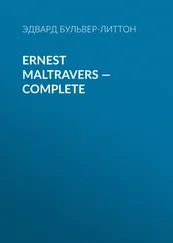Эдвард Бульвер-Литтон - Athens - Its Rise and Fall, Complete
Здесь есть возможность читать онлайн «Эдвард Бульвер-Литтон - Athens - Its Rise and Fall, Complete» — ознакомительный отрывок электронной книги совершенно бесплатно, а после прочтения отрывка купить полную версию. В некоторых случаях можно слушать аудио, скачать через торрент в формате fb2 и присутствует краткое содержание. Жанр: foreign_prose, История, literature_19, Европейская старинная литература, foreign_edu, foreign_antique, на английском языке. Описание произведения, (предисловие) а так же отзывы посетителей доступны на портале библиотеки ЛибКат.
- Название:Athens: Its Rise and Fall, Complete
- Автор:
- Жанр:
- Год:неизвестен
- ISBN:нет данных
- Рейтинг книги:4 / 5. Голосов: 1
-
Избранное:Добавить в избранное
- Отзывы:
-
Ваша оценка:
- 80
- 1
- 2
- 3
- 4
- 5
Athens: Its Rise and Fall, Complete: краткое содержание, описание и аннотация
Предлагаем к чтению аннотацию, описание, краткое содержание или предисловие (зависит от того, что написал сам автор книги «Athens: Its Rise and Fall, Complete»). Если вы не нашли необходимую информацию о книге — напишите в комментариях, мы постараемся отыскать её.
Athens: Its Rise and Fall, Complete — читать онлайн ознакомительный отрывок
Ниже представлен текст книги, разбитый по страницам. Система сохранения места последней прочитанной страницы, позволяет с удобством читать онлайн бесплатно книгу «Athens: Its Rise and Fall, Complete», без необходимости каждый раз заново искать на чём Вы остановились. Поставьте закладку, и сможете в любой момент перейти на страницу, на которой закончили чтение.
Интервал:
Закладка:
XI. We now come to the most melancholy and gloomy part of the Spartan system—the condition of the Helots.
The whole fabric of the Spartan character rested upon slavery. If it were beneath a Spartan to labour—to maintain himself—to cultivate land—to build a house—to exercise an art;—to do aught else than to fight an enemy—to choose an ephor—to pass from the chase or the palaestra to the public tables—to live a hero in war—an aristocrat in peace,—it was clearly a supreme necessity to his very existence as a citizen, and even as a human being, that there should be a subordinate class of persons employed in the occupations rejected by himself, and engaged in providing for the wants of this privileged citizen. Without Helots the Spartan was the most helpless of human beings. Slavery taken from the Spartan state, the state would fall at once! It is no wonder, therefore, that this institution should have been guarded with an extraordinary jealousy—nor that extraordinary jealousy should have produced extraordinary harshness. It is exactly in proportion to the fear of losing power that men are generally tyrannical in the exercise of it. Nor is it from cruelty of disposition, but from the anxious curse of living among men whom social circumstances make his enemies because his slaves, that a despot usually grows ferocious, and that the urgings of suspicion create the reign of terror. Besides the political necessity of a strict and unrelaxed slavery, a Spartan would also be callous to the sufferings, from his contempt for the degradation, of the slave; as he despised the employments abandoned to the Helot, even so would he despise the wretch that exercised them. Thus the motives that render power most intolerant combined in the Spartan in his relations to the Helot—viz., 1st, necessity for his services, lost perhaps if the curb were ever relaxed—2dly, consummate contempt for the individual he debased. The habit of tyranny makes tyranny necessary. When the slave has been long maddened by your yoke, if you lighten it for a moment he rebels. He has become your deadliest foe, and self-preservation renders it necessary that him whom you provoke to vengeance you should crush to impotence. The longer, therefore, the Spartan government endured, the more cruel became the condition of the Helots. Not in Sparta were those fine distinctions of rank which exist where slavery is unknown, binding class with class by ties of mutual sympathy and dependance—so that Poverty itself may be a benefactor to Destitution. Even among the poor the Helot had no brotherhood! he was as necessary to the meanest as to the highest Spartan—his wrongs gave its very existence to the commonwealth. We cannot, then, wonder at the extreme barbarity with which the Spartans treated this miserable race; and we can even find something of excuse for a cruelty which became at last the instinct of self-preservation. Revolt and massacre were perpetually before a Spartan’s eyes; and what man will be gentle and unsuspecting to those who wait only the moment to murder him?
XII. The origin of the Helot race is not clearly ascertained: the popular notion that they were the descendants of the inhabitants of Helos, a maritime town subdued by the Spartans, and that they were degraded to servitude after a revolt, is by no means a conclusive account. Whether, as Mueller suggests, they were the original slave population of the Achaeans, or whether, as the ancient authorities held, they were such of the Achaeans themselves as had most obstinately resisted the Spartan sword, and had at last surrendered without conditions, is a matter it is now impossible to determine. For my own part, I incline to the former supposition, partly because of the wide distinction between the enslaved Helots and the (merely) inferior Perioeci, who were certainly Achaeans; a distinction which I do not think the different manner in which the two classes were originally subdued would suffice to account for; partly because I doubt whether the handful of Dorians who first fixed their dangerous settlement in Laconia could have effectually subjugated the Helots, if the latter had not previously been inured to slavery. The objection to this hypothesis—that the Helots could scarcely have so hated the Spartans if they had merely changed masters, does not appear to me very cogent. Under the mild and paternal chiefs of the Homeric age 145 Конец ознакомительного фрагмента. Текст предоставлен ООО «ЛитРес». Прочитайте эту книгу целиком, купив полную легальную версию на ЛитРес. Безопасно оплатить книгу можно банковской картой Visa, MasterCard, Maestro, со счета мобильного телефона, с платежного терминала, в салоне МТС или Связной, через PayPal, WebMoney, Яндекс.Деньги, QIWI Кошелек, бонусными картами или другим удобным Вам способом.
, they might have been subjected to a much gentler servitude. Accustomed to the manners and habits of their Achaean lords, they might have half forgotten their condition; and though governed by Spartans in the same external relations, it was in a very different spirit. The sovereign contempt with which the Spartans regarded the Helots, they would scarcely have felt for a tribe distinguished from the more honoured Perioeci only by a sterner valour and a greater regard for freedom; while that contempt is easily accounted for, if its objects were the previously subdued population of a country the Spartans themselves subdued.
The Helots were considered the property of the state—but they were intrusted and leased, as it were, to individuals; they were bound to the soil; even the state did not arrogate the power of selling them out of the country; they paid to their masters a rent in corn—the surplus profits were their own. It was easier for a Helot than for a Spartan to acquire riches—but riches were yet more useless to him. Some of the Helots attended their masters at the public tables, and others were employed in all public works: they served in the field as light-armed troops: they were occasionally emancipated, but there were several intermediate grades between the Helot and the freeman; their nominal duties were gentle indeed when compared with the spirit in which they were regarded and the treatment they received. That much exaggeration respecting the barbarity of their masters existed is probable enough; but the exaggeration itself, among writers accustomed to the institution of slavery elsewhere, and by no means addicted to an overstrained humanity, is a proof of the manner in which the treatment of the Helots was viewed by the more gentle slave-masters of the rest of Greece. They were branded with ineffaceable dishonour: no Helot might sing a Spartan song; if he but touched what belonged to a Spartan it was profaned—he was the Pariah of Greece. The ephors—the popular magistrates—the guardians of freedom—are reported by Aristotle to have entered office in making a formal declaration of war against the Helots—probably but an idle ceremony of disdain and insult. We cannot believe with Plutarch, that the infamous cryptia was instituted for the purpose he assigns—viz., that it was an ambuscade of the Spartan youths, who dispersed themselves through the country, and by night murdered whomsoever of the Helots they could meet. But it is certain that a select portion of the younger Spartans ranged the country yearly, armed with daggers, and that with the object of attaining familiarity with military hardships was associated that of strict, stern, and secret surveillance over the Helot population. No Helot, perhaps, was murdered from mere wantonness; but who does not see how many would necessarily have been butchered at the slightest suspicion of disaffection, or for the faintest utility of example? These miserable men were the objects of compassion to all Greece. “It was the common opinion,” says Aelian, “that the earthquake in Sparta was a judgment from the gods upon the Spartan inhumanity to the Helots.” And perhaps in all history (not even excepting that awful calmness with which the Italian historians narrate the cruelties of a Paduan tyrant or a Venetian oligarchy) there is no record of crime more thrilling than that dark and terrible passage in Thucydides which relates how two thousand Helots, the best and bravest of their tribe, were selected as for reward and freedom, how they were led to the temples in thanksgiving to the gods—and how they disappeared, their fate notorious—the manner of it a mystery!
Читать дальшеИнтервал:
Закладка:
Похожие книги на «Athens: Its Rise and Fall, Complete»
Представляем Вашему вниманию похожие книги на «Athens: Its Rise and Fall, Complete» списком для выбора. Мы отобрали схожую по названию и смыслу литературу в надежде предоставить читателям больше вариантов отыскать новые, интересные, ещё непрочитанные произведения.
Обсуждение, отзывы о книге «Athens: Its Rise and Fall, Complete» и просто собственные мнения читателей. Оставьте ваши комментарии, напишите, что Вы думаете о произведении, его смысле или главных героях. Укажите что конкретно понравилось, а что нет, и почему Вы так считаете.












